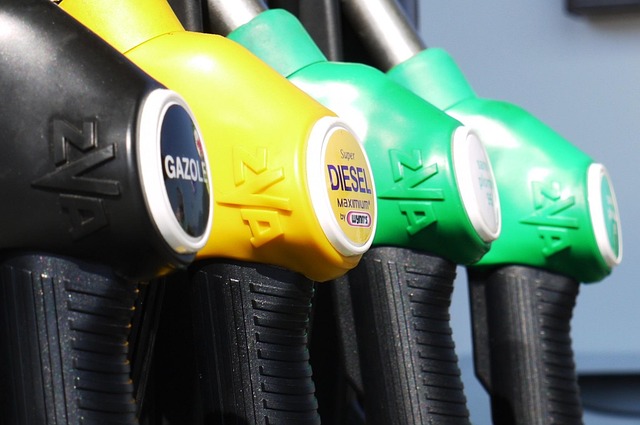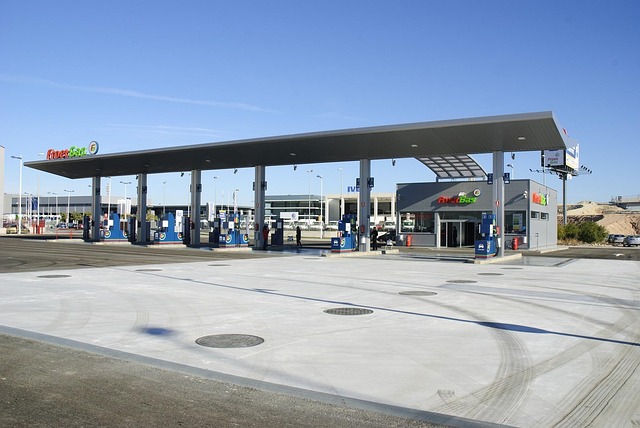Selecting low-emission gasoline vehicles is both an environmentally responsible and financially smart choice. These cars, engineered with advanced technologies like hybrid motors and efficient engines, reduce greenhouse gas emissions and fuel costs. Reputable brands like Toyota, Ford, Honda offer top-rated models such as the Prius and Civic, prioritizing sustainability, durability, and superior performance. Proper maintenance, including regular oil changes and filter checks, ensures optimal efficiency and minimizes environmental impact. When choosing gasoline vehicles, opt for those with robust engines optimized for efficiency to contribute to a greener future while saving money on fuel costs.
Considering a switch to a low-emission gasoline vehicle? This comprehensive guide helps you navigate this eco-friendly option. From understanding the technology behind these cars to exploring top models and maintenance tips, we cover all you need to know to make an informed decision. Discover the numerous benefits for both the environment and your wallet. Start your journey towards a greener future with our detailed overview of selecting gasoline vehicles that offer sustainable performance without compromising on quality.
- Understanding Low-Emission Gasoline Vehicles: A Comprehensive Overview
- Benefits of Choosing Low-Emission Cars for the Environment and Your Wallet
- Key Features to Look Out For When Selecting a Low-Emission Vehicle
- Top Picks: Exploring Popular Low-Emission Gasoline Models on the Market
- Maintenance Tips for Optimizing Performance and Environmental Efficiency
Understanding Low-Emission Gasoline Vehicles: A Comprehensive Overview

Low-emission gasoline vehicles are designed to reduce greenhouse gas emissions and pollutants, making them a sustainable choice for environmentally conscious consumers. These vehicles utilize advanced technologies to achieve lower emissions compared to traditional gasoline cars. One key approach is through improved engine efficiency, ensuring that more energy from the fuel is converted into power, thereby burning less gasoline overall.
When considering a low-emission gasoline vehicle, it’s essential to look at options with durable engines known for their longevity. Many modern durable gasoline car models offer excellent performance while minimizing emissions. For those planning long trips, selecting a best gas car designed for efficiency can significantly reduce fuel costs and environmental impact.
Benefits of Choosing Low-Emission Cars for the Environment and Your Wallet

Choosing low-emission gasoline vehicles is a smart move for both the environment and your wallet. These cars are designed to reduce harmful pollutants, such as carbon dioxide and nitrogen oxides, which contribute to climate change and air pollution. By selecting a vehicle with advanced emissions control technology, you’re actively helping to improve air quality and mitigate environmental impact.
In addition to their ecological benefits, low-emission gasoline cars often come with fuel efficiency enhancements that translate into significant savings on your gas bill. Hybrid electric vehicles, for instance, combine a traditional gasoline engine with an electric motor to achieve better mileage. Furthermore, many of these advanced gasoline vehicles boast excellent safety ratings, ensuring peace of mind while you drive and contributing to a safer overall driving experience.
Key Features to Look Out For When Selecting a Low-Emission Vehicle

When selecting a low-emission gasoline vehicle, several key features should be at the top of your list. Firstly, look for reputable gasoline car brands known for their commitment to environmental sustainability and robust engineering. These brands often invest heavily in research and development to ensure their models meet stringent emission standards while maintaining exceptional performance. Secondly, consider durable gasoline car models that are designed to last, minimizing the need for frequent replacements and reducing overall environmental impact due to manufacturing and disposal.
Additionally, explore hybrid electric vehicles (HEVs) as they offer significant fuel efficiency gains by combining a conventional engine with an electric motor. HEVs not only reduce greenhouse gas emissions but also contribute to lower operating costs over time. When evaluating options, pay attention to advanced technologies such as start-stop systems, regenerative braking, and smart infotainment systems that further enhance energy conservation without compromising on driving experience.
Top Picks: Exploring Popular Low-Emission Gasoline Models on the Market

When it comes to selecting a low-emission gasoline vehicle, there are numerous top picks that stand out for their combination of eco-friendly features and performance. Some of the most reputable gasoline car brands have pioneered innovations in this space, offering models that not only reduce carbon footprint but also deliver an enjoyable driving experience. For instance, the Toyota Prius has long been a pioneer in hybrid technology, and its latest models continue to impress with efficient engines and low cost gasoline car maintenance benefits.
Other popular choices include vehicles from Ford, like the Fusion Hybrid, which boasts advanced fuel-saving technologies and contributes to sustainable transportation options. Additionally, Honda’s Insight and Civic models offer excellent fuel economy without compromising on comfort or style. These select gasoline vehicles not only represent the cutting edge of automotive technology but also serve as practical solutions for those seeking both economic benefits and environmental responsibility in their daily commutes.
Maintenance Tips for Optimizing Performance and Environmental Efficiency

Proper maintenance is key to maximizing the performance and environmental efficiency of your low-emission gasoline vehicle. Regular oil changes, typically every 5,000 to 10,000 miles or as recommended by the manufacturer, are essential for keeping your engine running smoothly. Using the correct type of oil, as specified in your vehicle’s owner’s manual, ensures optimal lubrication and reduces friction, contributing to better fuel economy and lower greenhouse gas emissions.
In addition to oil changes, keep an eye on other critical components such as air filters, spark plugs, and fuel injectors. Dirty or faulty air filters can restrict airflow, impacting engine performance and increasing fuel consumption. Spark plugs that are worn out or misfired can lead to inefficient combustion, while well-maintained fuel injectors ensure precise fuel delivery, enhancing both power and efficiency. Selecting affordable reliable gas cars equipped with advanced emission control systems and maintaining them according to these guidelines will not only extend the longevity of gasoline engines but also contribute significantly to reducing overall environmental impact.
When considering a select gasoline vehicle that prioritizes both environmental friendliness and financial savings, the benefits are clear. Embracing low-emission gasoline cars not only reduces your carbon footprint but also offers long-term cost efficiency. By understanding key features, exploring top models, and implementing proper maintenance, you can make an informed decision that contributes to a greener future while keeping your wallet happy.
